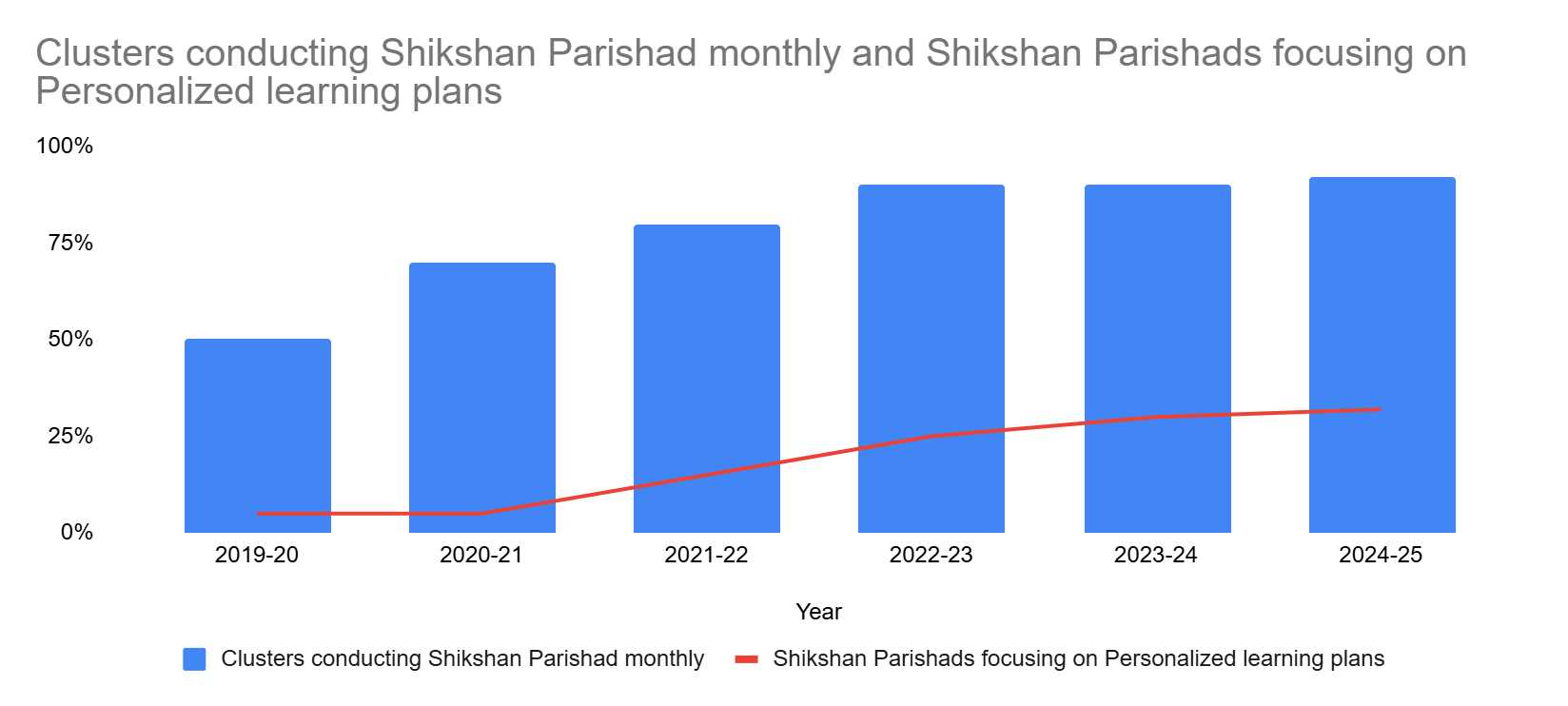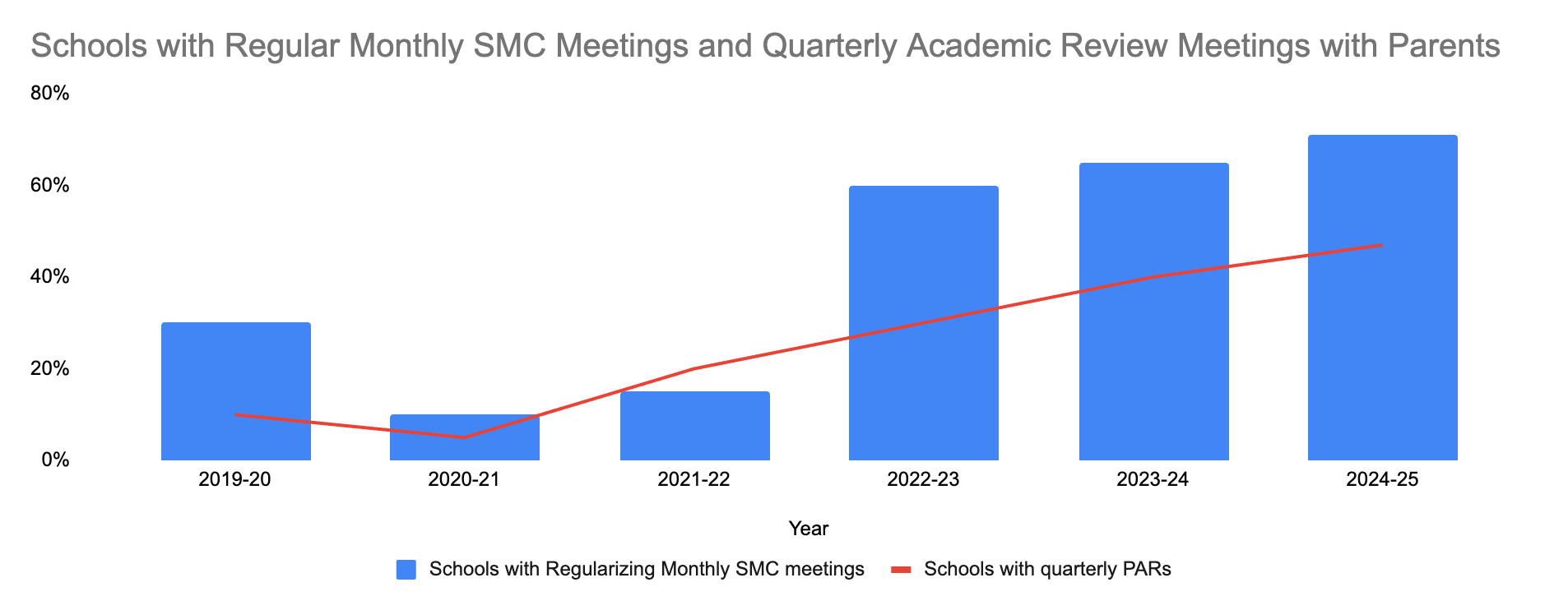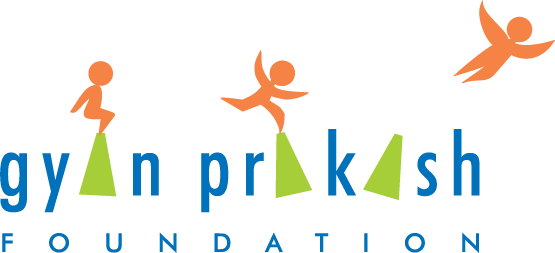
Gyan Prakash Foundation has adopted a systemic perspective to understand the problems plaguing the rural government education system across India. It has identified two core areas which can lead to a transformation of the system.
- Strengthening Cluster Based Teacher Professional Learning Communities
- Community Ownership of Public Education
Strengthening Cluster Based Teacher Professional Learning Communities
Shikshan Parishads were institutionalized at the State level in August 2016 by SCERT. In the current academic year, approximately 5,700 Teacher Collectives (TCs) were conducted across 17 districts in Maharashtra, with over 90% teacher participation.
456 clusters across the 17 districts are regularly conducting them on a monthly basis. Out of these, Shikshan Parishads in 146 clusters are taking up the concept of personalized learning plans and encouraging teachers within the cluster to prepare and implement them in their classrooms.
Data Driven Shikshan Parishads

Community Ownership of Public Education
Panchayati Raj Institutions (PRI) and School Management Committees (SMC’s) need to work together to deliberate and consolidate their vision for education. This enables coordination of information and resources to implement the collective vision of the community towards education of their children. Gyan Prakash Foundation works towards strengthening these structures to improve their functioning and communication across their different levels. The organisation’s work around governance in the four districts of Maharashtra, has been recognized by the SCERT. It published and disseminated training modules on SMC designed in collaboration with Gyan Prakash Foundation in 2013 and again in January 2022.
Gyan Prakash Foundation works with each stakeholder in the ecosystem to align with the competency based approach – parents, teachers in schools, School Management Committee, Cluster Level Functionaries such as the Kendra Pramukh and education institutions such as DIET. This is done to ensure sustainability of the change process by building ownership amongst the stakeholders.
Strengthening Parent Engagement in Learning

Gyan Prakash Foundation’s work in strengthening SMCs in the 17 districts has led to more than 30% schools (about 10000 schools) regularizing monthly SMC meetings. Of these, around 3500 schools carry out quarterly Academic Review Meetings with Parents, which includes a one- on-one individualized parent and teacher meeting where every child’s strength and progress is discussed. This gives parents an opportunity to engage in their child’s learning.
